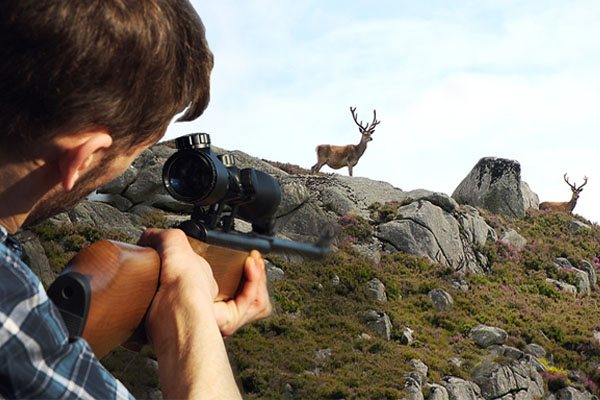Travel Pages
RomWell Travel Advisory
Basic Hunting Tips
Hunting is very exciting, but it can also be extremely dangerous and even deadly if hunters are not educated and religiously exercise good hunting safety techniques. Use some caution and common sense to ensure many more years of happy hunting yet to come.
1. Prior to going on your hunting trip, prepare yourself well. Make sure all your equipment is in working order.
2. Never depart to an unplanned location or take off on a spontaneous hunting trip.
3. Always inform others about your hunting plan and give them information when you will be returning.
4. Whenever possible, leave detailed directions to your hunting grounds with friends or family that will be staying home in case an emergency arises and they need to direct rescue or medical personnel to your location.
5. Make every effort to return home as close to your planned time as possible.
6. Before your hunting trip plan and discuss all steps in case you are late checking in, so your contact person can then know how to set out using your directions to see if you need assistance.
7. Take the time to prepare your firearms. Clean and inspect the firearms after every use or after any time your weapon has spent in storage.
8. Prepare a small first aid kit to carry with you while you are hunting, and always carry quality survival kit with you on your hunting trip.
9. Consider bringing your cell phone. Even if you try to avoid any connection with "civilisation", you can always keep it turned off while you are hunting, and a phone can be the difference between life and death in an emergency.
10. Avoid camouflage gear and clothing and wear orange-colored clothing along with orange-colored safety gear. While camouflaged gear is great to help you remain undetected by the animals, it can also confuse other hunters if they see movement from a distance without recognizing the orange color.
11. When you are hunting in a group, try to keep the location of those around you in your mind as you change positions to help avoid accidents.
12. If you are using a decoy such as a doe decoy, be sure to use orange safety tape around the perimeter of the area you will be in, to help other hunters recognize your decoy. You can also observe the area from an elevated position to further protect yourself from any stray shots directed at your decoy.
13. When you are hunting deer and find yourself tracking a wounded animal, always use extreme caution. Other animals in the area may become panicked at the smell of one of their own running wounded near them. An injured animal is very unpredictable and may likely be desperate to get away from you if it senses that you are pursuing.
14. Do not approach a wounded animal head-on and never allow yourself to be corned between a solid object and a wounded animal.
15. Always plan in advance to have a way of escape in your mind in case of the animal attack.
16. If attacked, protect your head and chest as much as possible to limit damage to your vital organs and increase your chance of survival. Try to cover your head with your arms and roll into a tight ball to protect your head and torso from injury.
17. Always be aware of your surroundings and lookout for other animals that may be encountered while hunting. Being aware of your surroundings is an important step in staying safe while hunting.
18. Dress appropriately for the predicted weather in your area. Dressing in layers is recommended and helpful.
19. If using public transportation such as a plane, always check with your carrier to determine its requirements for transporting firearms and other hunting gear you plan to take on your hunting trip.
20. Always be prepared to give detailed directions to your exact location as you move through the woods.




